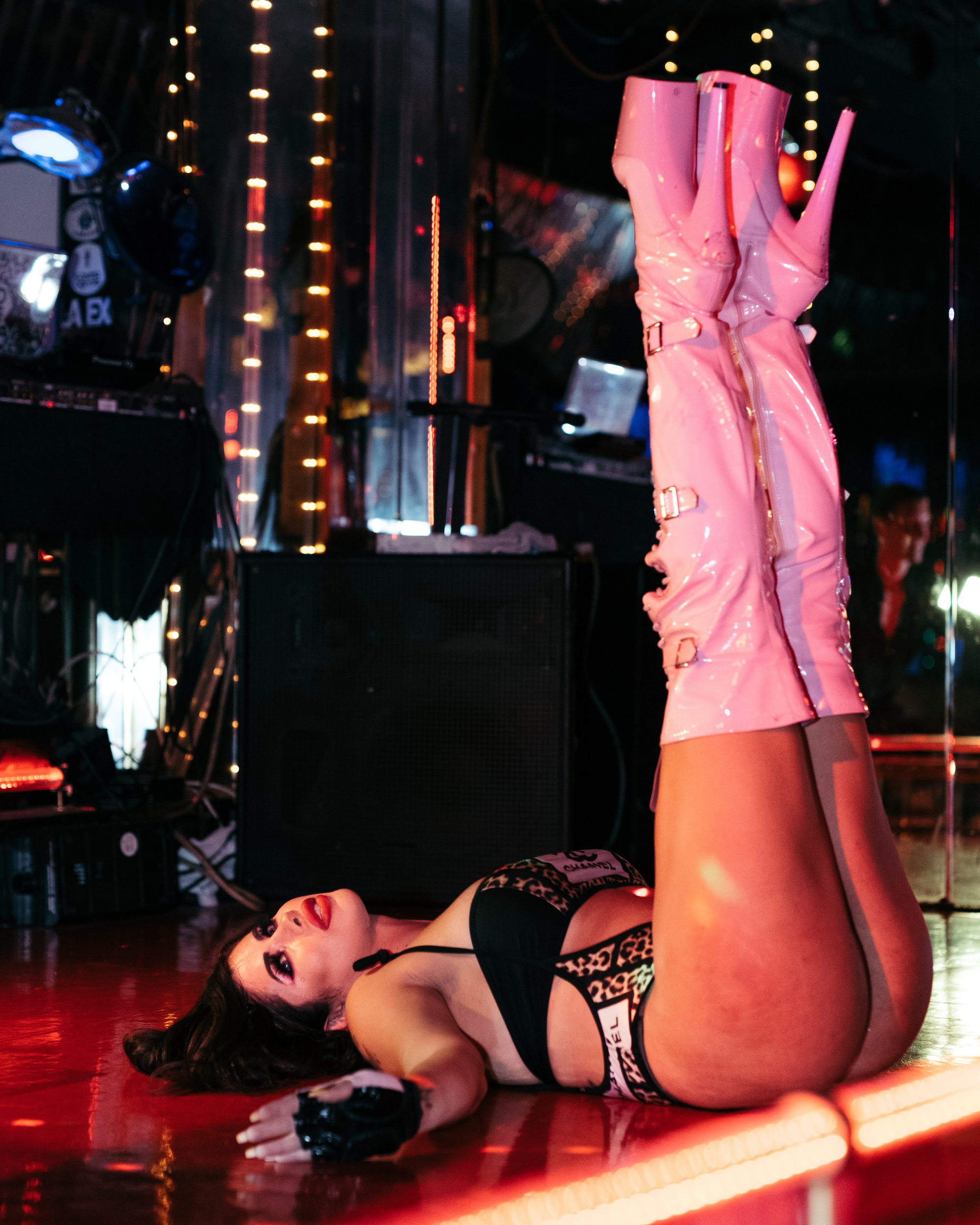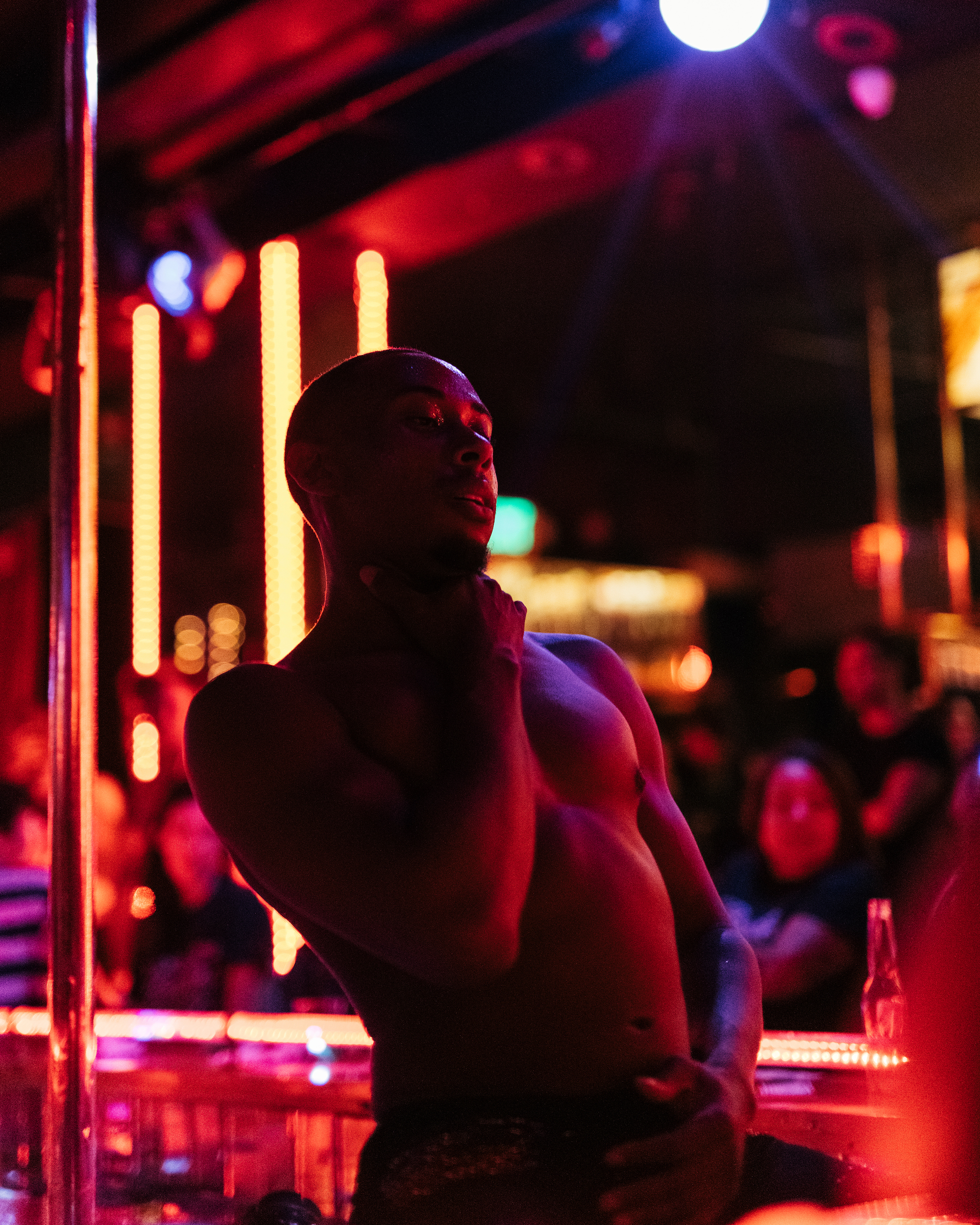A Look Inside the Sexiest Trans-Inclusive Strip Night in America
Credit to Author: Daniel Spielberger| Date: Wed, 25 Sep 2019 20:01:01 +0000
Strip nights usually don’t begin with political speeches. But Jolene, the first trans-inclusive event run by a trans person in Los Angeles at Cheetahs nightclub, started on a serious note. Bella Bathory, a sex worker advocate and one of the event’s cisgender organizers, encouraged the neon-lit bar's audience members to go beyond social media activism by giving trans women “job opportunites, giving them fucking housing,” and “donating to [their] causes.” During her call-to-arms, dancers recited the names of trans women murdered in 2019.
Once the sobering preface ended, an escapist spectacle commenced—acts included a sultry dance to Lana Del Rey’s “Fuck It I Love You” and a blowtorch-hairspray extravaganza set to The Prodigy’s “Firestarter.” The crowd mirrored the performers' diversity and enthusiasm—and while, as Bathory stressed, an evening like this is just one aspect to combating systemic violence, Jolene is a successful model for a more inclusive sex industry. The night attracted an eclectic clientele: LGBTQ icon Buck Angel, straight men, and Black women who wanted to support dancers of color. The front row was packed with queer people showering the stage with cash and admiration.
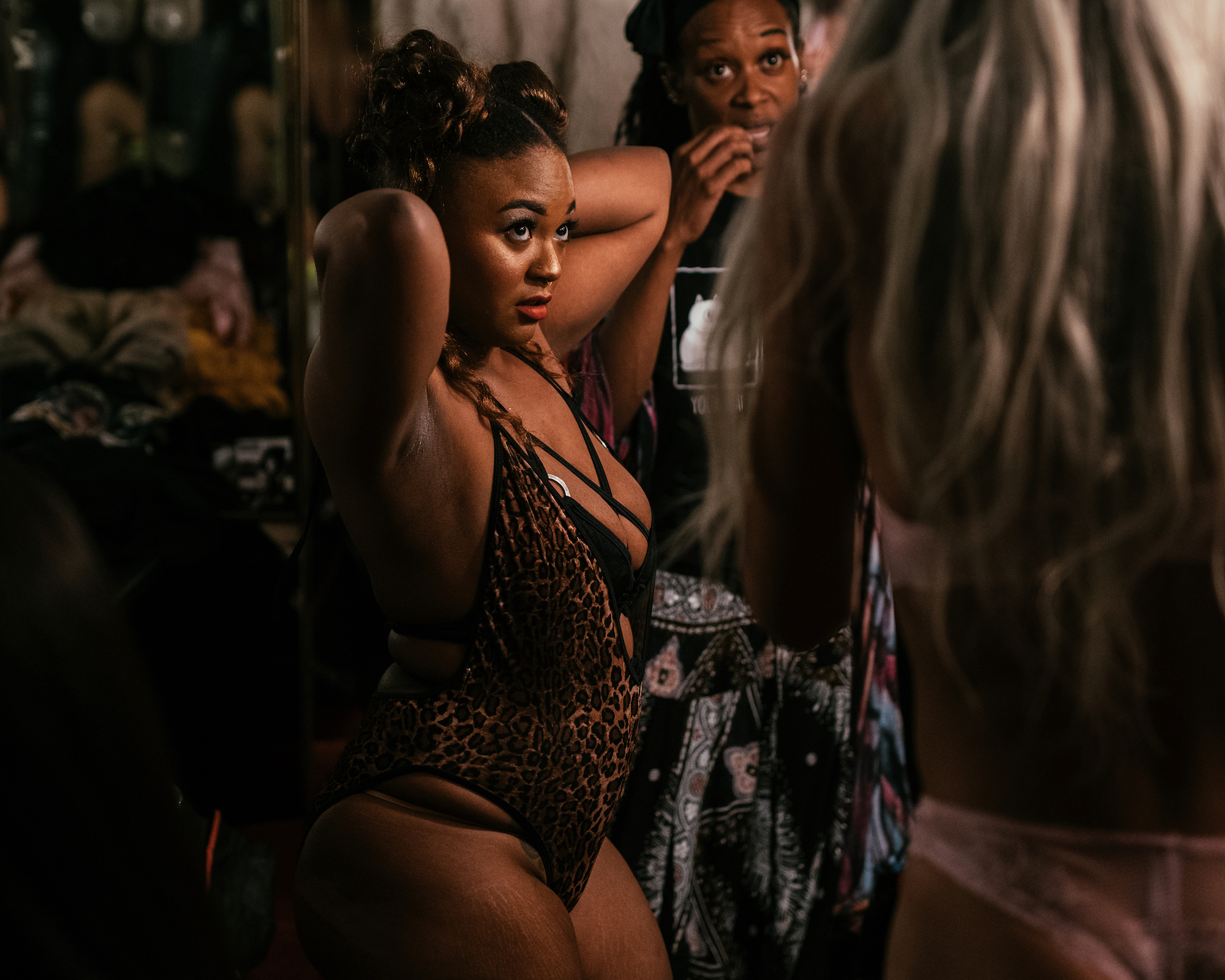
Since its first night in June, Jolene, which is named after Dolly Parton’s ode to the other woman to play off secretiveness about transamory, has garnered buzz—Dita von Teese gleefully shot a money gun at a July event, and a steady stream of performers are reaching out to EthicalDrvgs for opportunities. At her fetish store, Demask DTLA, Bathory said organizers provide workshops for less experienced dancers so they might eventually “start their own fucking Jolene.”
An already unwelcoming industry has become tougher for people who aren’t white, cisgender, or thin. California is grappling with FOSTA/SESTA—an anti-sex trafficking law that’s made it harder for sex workers to find clients—and the California Supreme Court’s ruling forcing nightclubs to consider strippers employees, resulting in firings and incidents of wage theft. Jolene's mission is, in part, to give performers better opportunities in an increasingly hostile climate. Remy Solomon, attending for the second time, specifically went to Jolene to celebrate the LGBTQ community and tangibly support strippers while Hustlers reigned at the box office. “If you enjoyed the movie, you should be giving money back, ” she remarked.
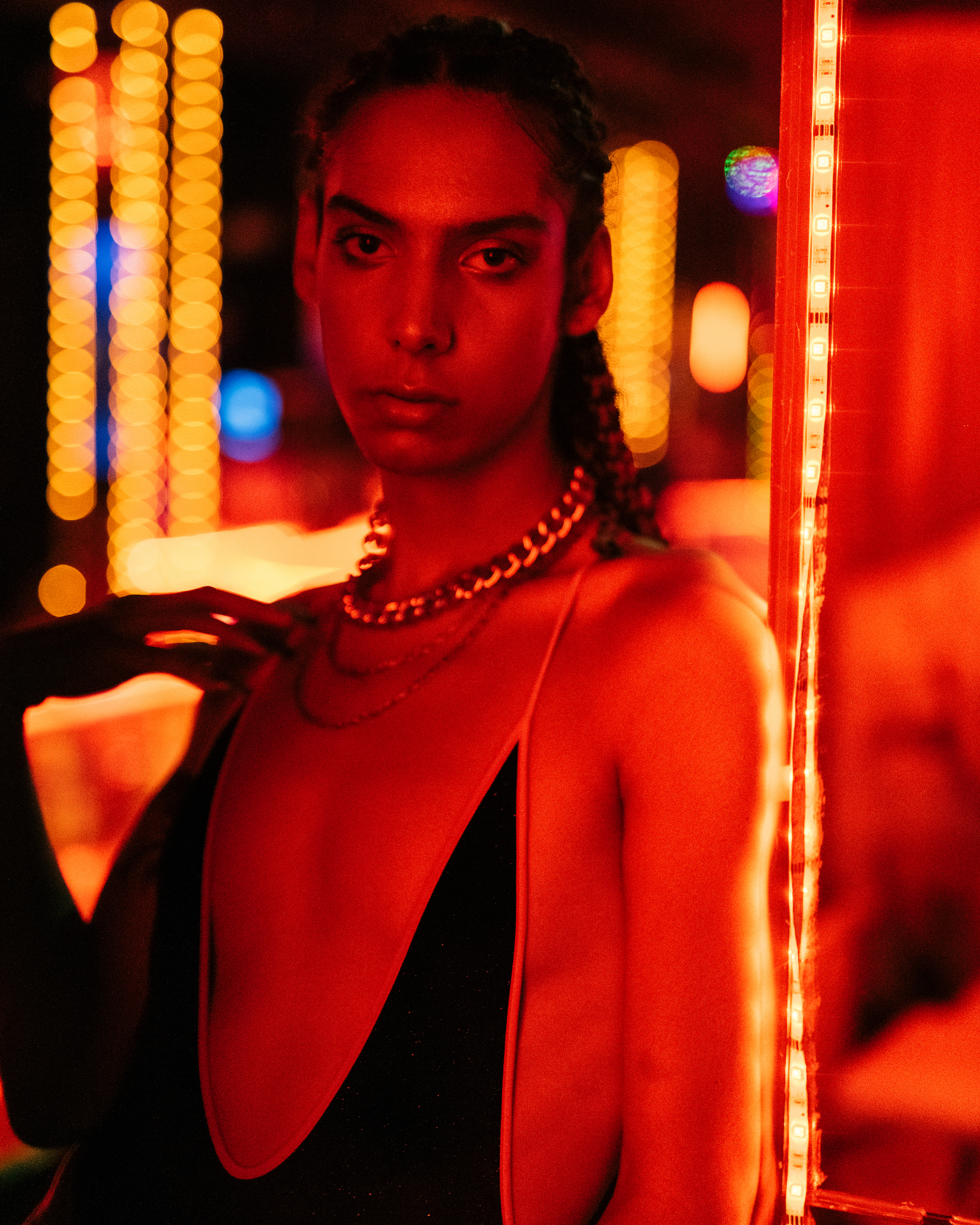
Dancers who have been made to feel less than welcome at other clubs have flocked to Jolene. Avery, a Black woman who dances at Jolene, recalled how she was denied an audition once she showed up in person at numerous L.A. clubs. Chanel, a trans dancer, says Jolene is different from working at Divas, a San Francisco trans nightclub that closed this year, where she was explicitly hired because she’s transgender; at heterosexual clubs, she often goes stealth. Jolene, she said, is “just about having fun, being good dancers, and creating a good show.”
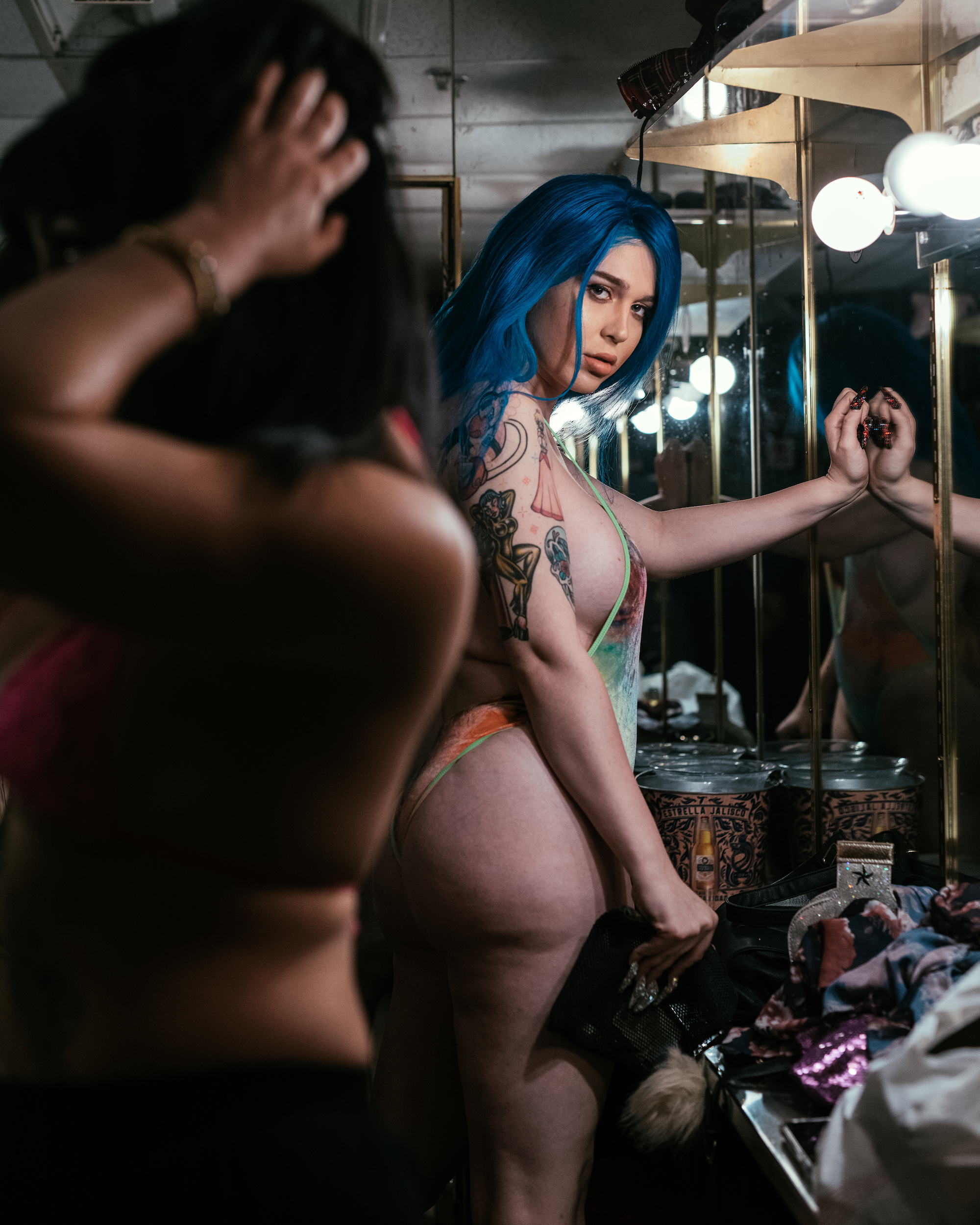
EthicalDrvgs, a trans woman of color who performs as Fine China, is the mastermind behind Jolene. Adorned with glitter teardrops to cheekily play into a “sad girl fantasy,” Fine China captivated the room as she danced to Radiohead’s “Karma Police.” She's part of Jolene’s lineup of both cisgender and transgender performers. EthicalDrvgs said she’s creating a space where “you can be attracted to whoever you want, and not have to feel some type of way about” and “people [can] let go of social signals at the door and allow themselves to live their truth.”
According to the Human Rights Campaign, from 2013 to 2018, there were 128 reported cases of “anti-transgender fatal violence.” Eighty percent of the victims were trans women of color. Anti-trans violence is often linked to men grappling with transamory. Addison Rose Vincent, founder of LGBTQ consulting service Break The Binary, said the stigma stems from the notion that transamory makes a man “less than, inferior, and deserving of ridicule."
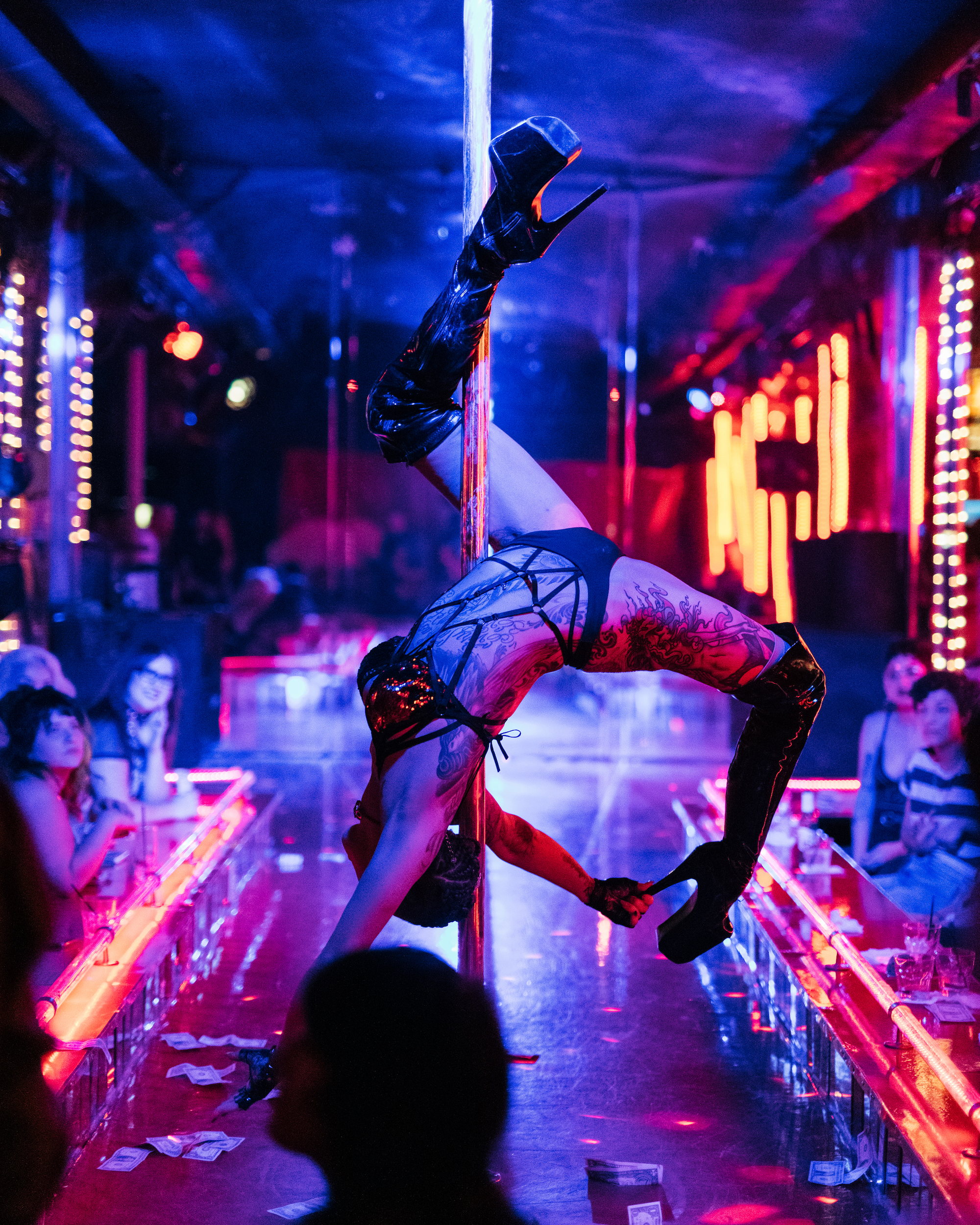
Cheetahs had previously run a trans-themed night, but it was headed by a cisgender man and had an offensive title—Tranny Strip— characterizing transamory as a risque fetish. When EthicalDrvgs began dancing at Tranny Strip in 2019, she was inspired to throw her own event celebrating trans and gender-nonconforming dancers. Last April, along with queer party collective Black Charmed and Gracie Cartier, she launched Girls Like Us—a cabaret featuring femme performers from across the gender spectrum. EthicalDrvgs then teamed up with Bathory and pole instructor Jordan Kensley for Jolene, which, Kensley said, turns “shame” into “glitter—and it sprinkles it all over you, like fairy dust.”
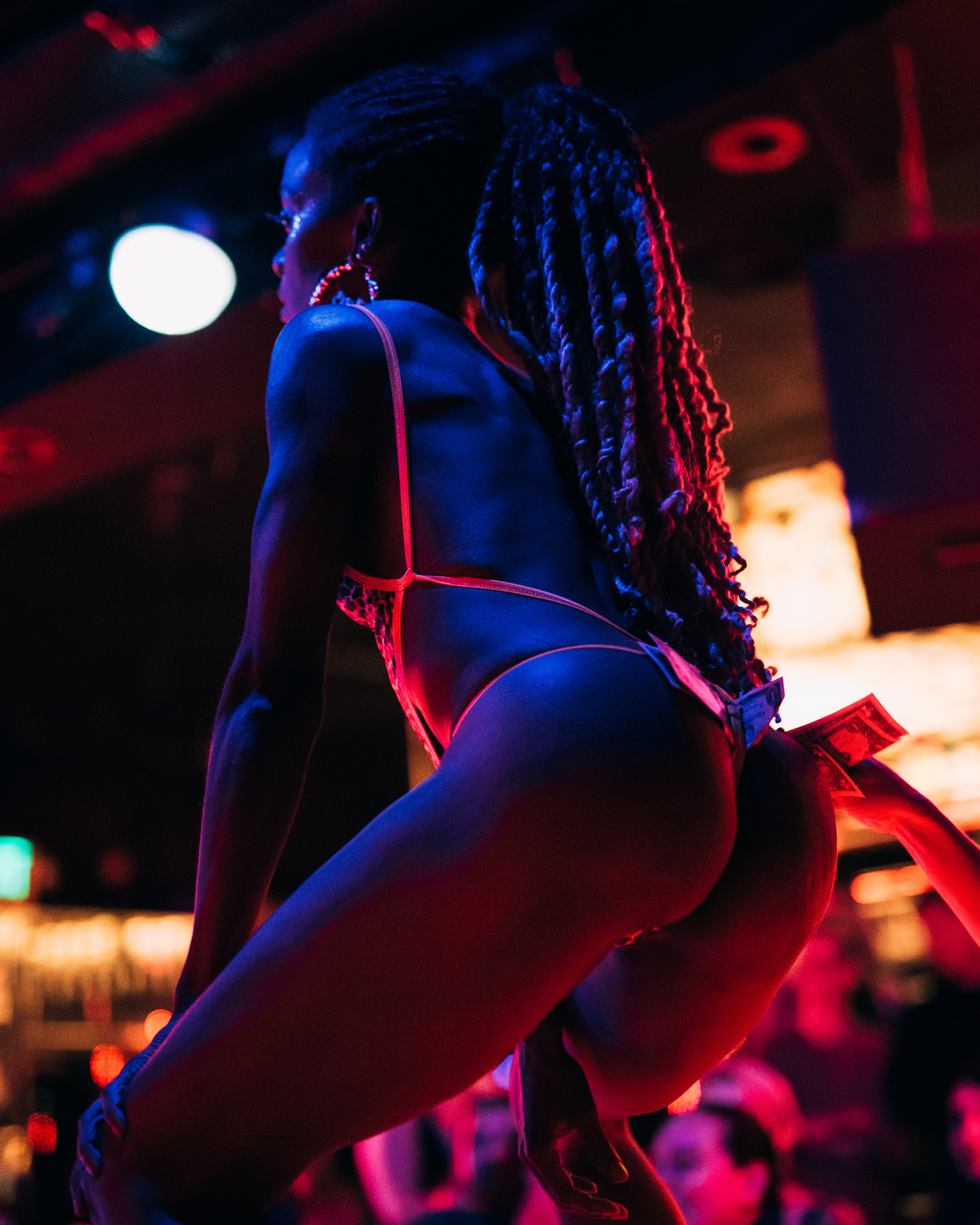
Erica Solitaire and Elise did a gymnastic duet, twirling around a pole while a moody electronica song blasted. Many attendees knew the dancers personally. Adam, a twenty-something wearing a bright, geometric yarmulke and a few piercings, had already gone to Jolene twice to see his friend, the dancer Malice. He spent the evening with two friends in the front row, laughing, throwing dollar bills, and remarking, “The performances are outside of this world!”
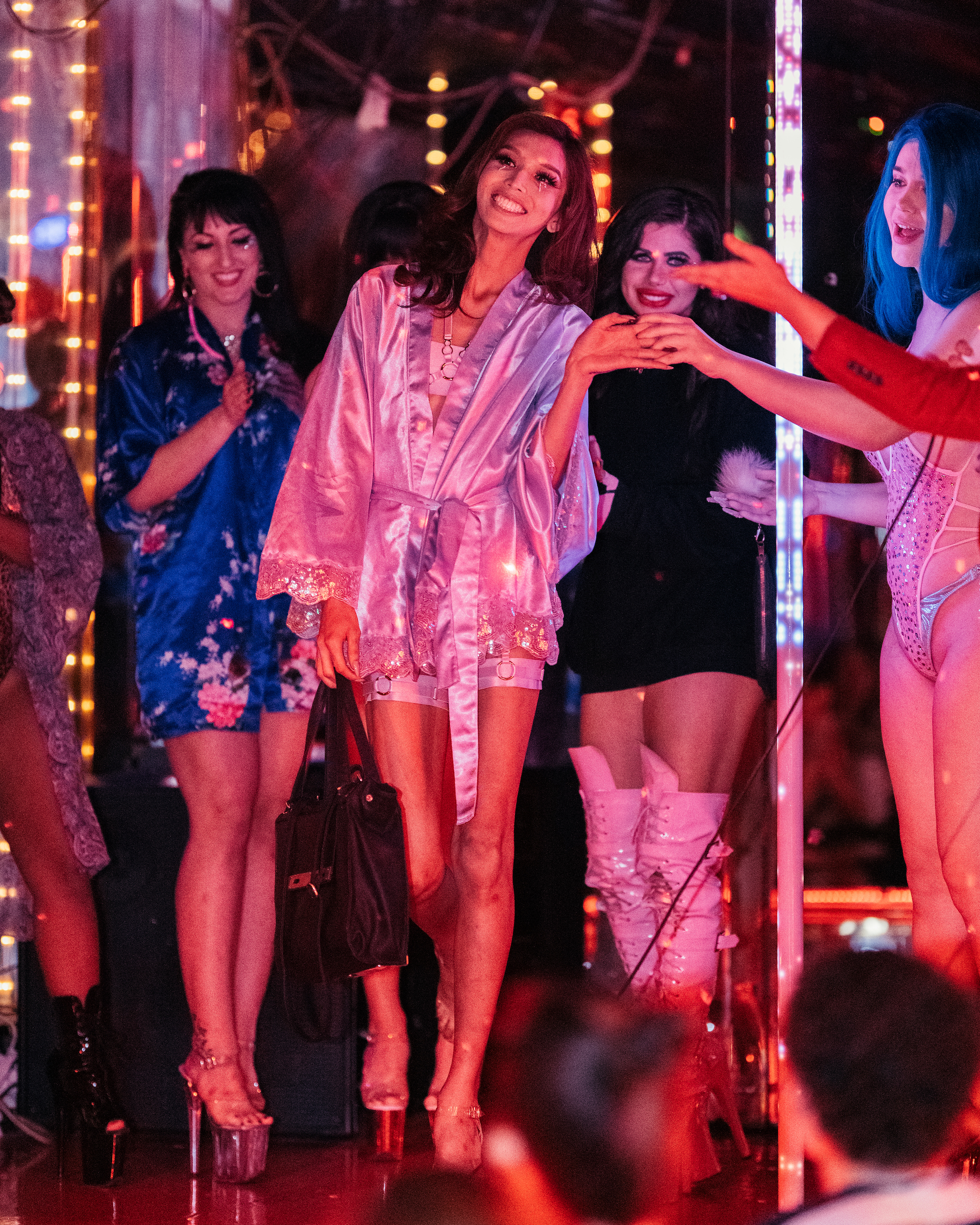
Onyx Black, a dancer with years of experience, increasingly relies on inclusive nights such as Jolene and Teaseher, a recurring event night celebrating LGBTQ people of color, to perform. As a gay Black man, Yung Pole Master is ecstatic to dance at an event that defies West Hollywood’s standards of beefy white gay masculinity. “We can bring such a light to an environment that usually doesn’t have a good energy," he exclaimed a few minutes after giving a stunning pole performance, including a moment when he tapped his platform heels on the ceiling.
"On a day-to-day basis in the club, we’re working for the money that we’re going to use to survive. For this night, it was more we're here to entertain, perform, and live on the stage,” said Avery.
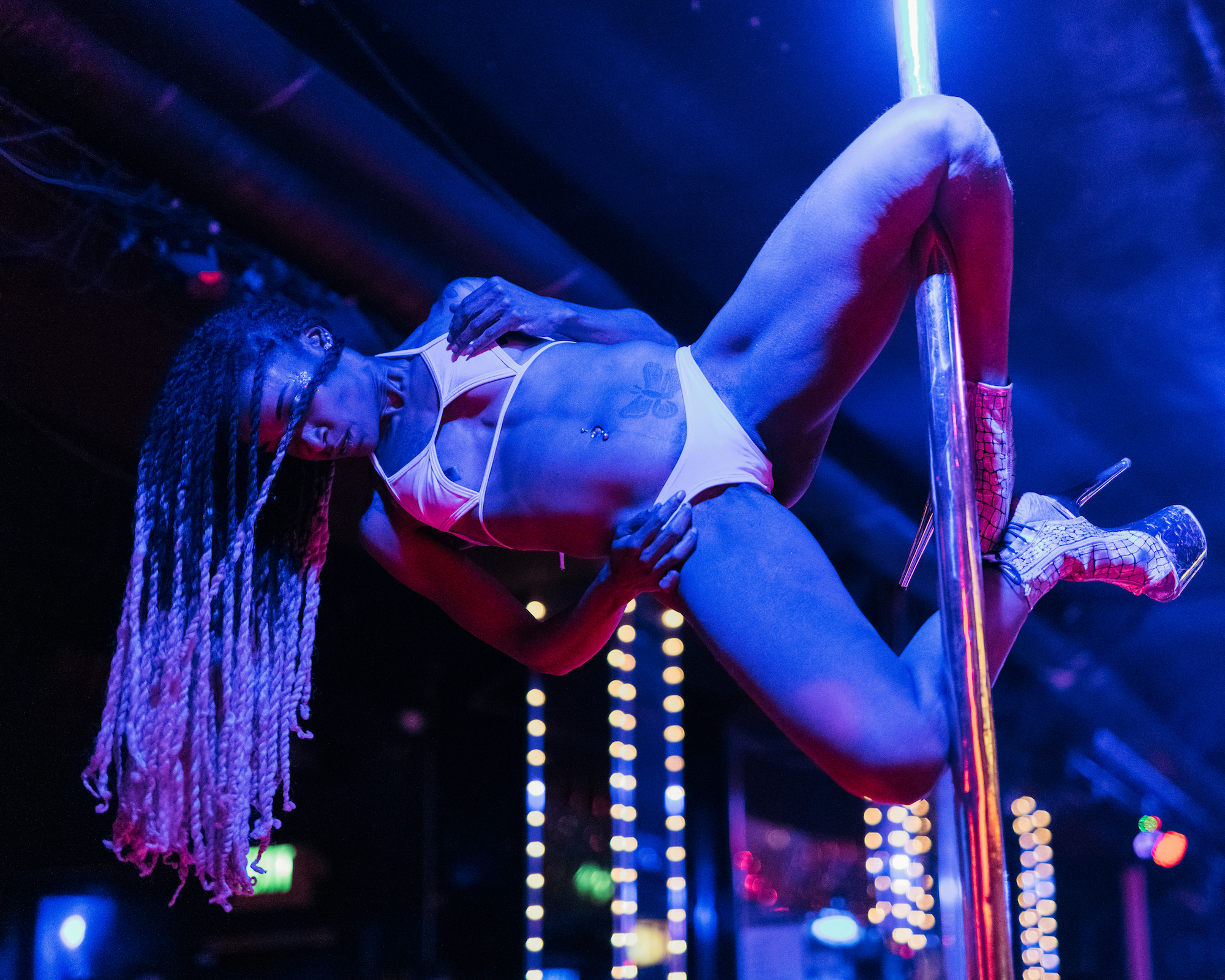
“We are bringing old-school Hollywood back—but in the most inclusive way,” Solitaire noted. The show’s roster had a traditional strip-club feel, highlighted by dramatic lighting; audience members roared as performers accomplished feats of flexibility and physicality.
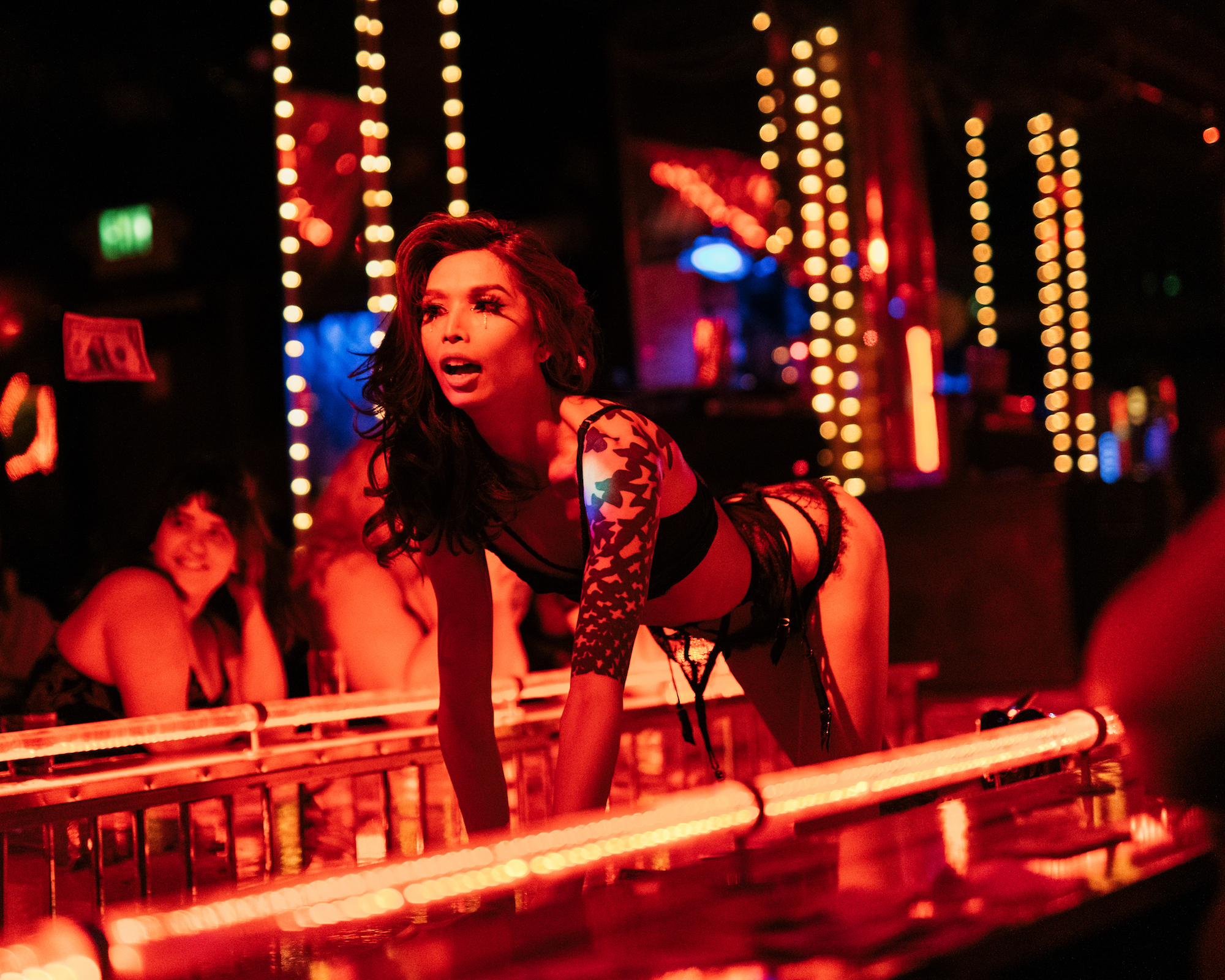
Cheetahs is primarily a heterosexual space, but there's an ethos of integration at Jolene. Finn, an attendee, said, “[For Jolene] to be at a place that’s not exclusively queer is important—it’s recognizing that queer people are just people; it doesn’t have to be a segregated group.”
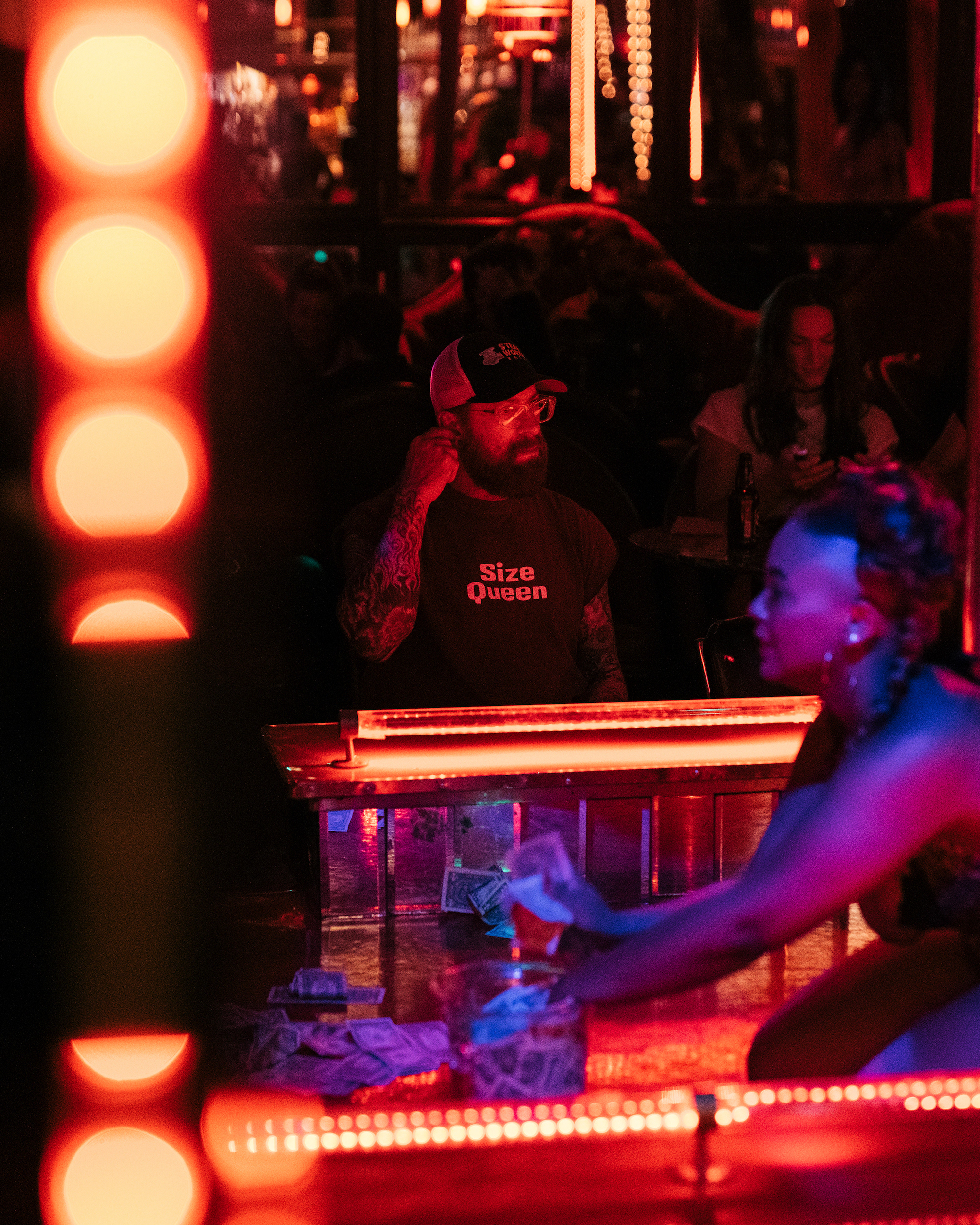
Jolene's dancers share a strong collective bond. Throughout the night, they helped one another collect tips, get ready backstage, and safely return home.
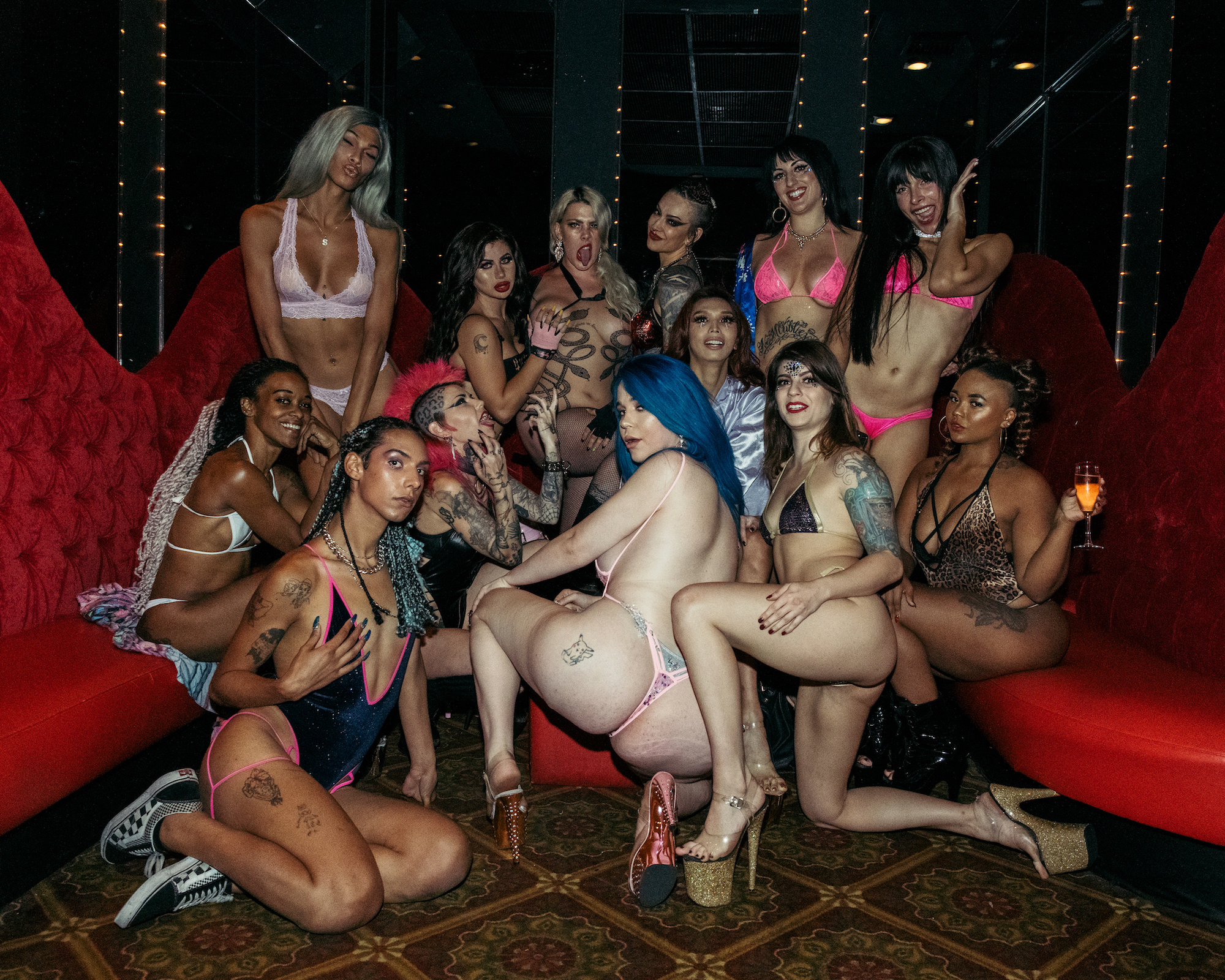
EthicalDrvgs said, “I have a dream of opening up an LGBT space that’s run by someone from the community, not someone that's going to exploit queer people.” For now, she is working tirelessly to create a diverse network of empowered strippers. Trans performer Ryder Monroe feels reassured that a trans woman is at the helm. “If something's wrong, I can speak up and know that I'm going to be heard and know that I'm not going to be retaliated against,” she said. At Jolene, marginalized dancers thrive on their own terms.
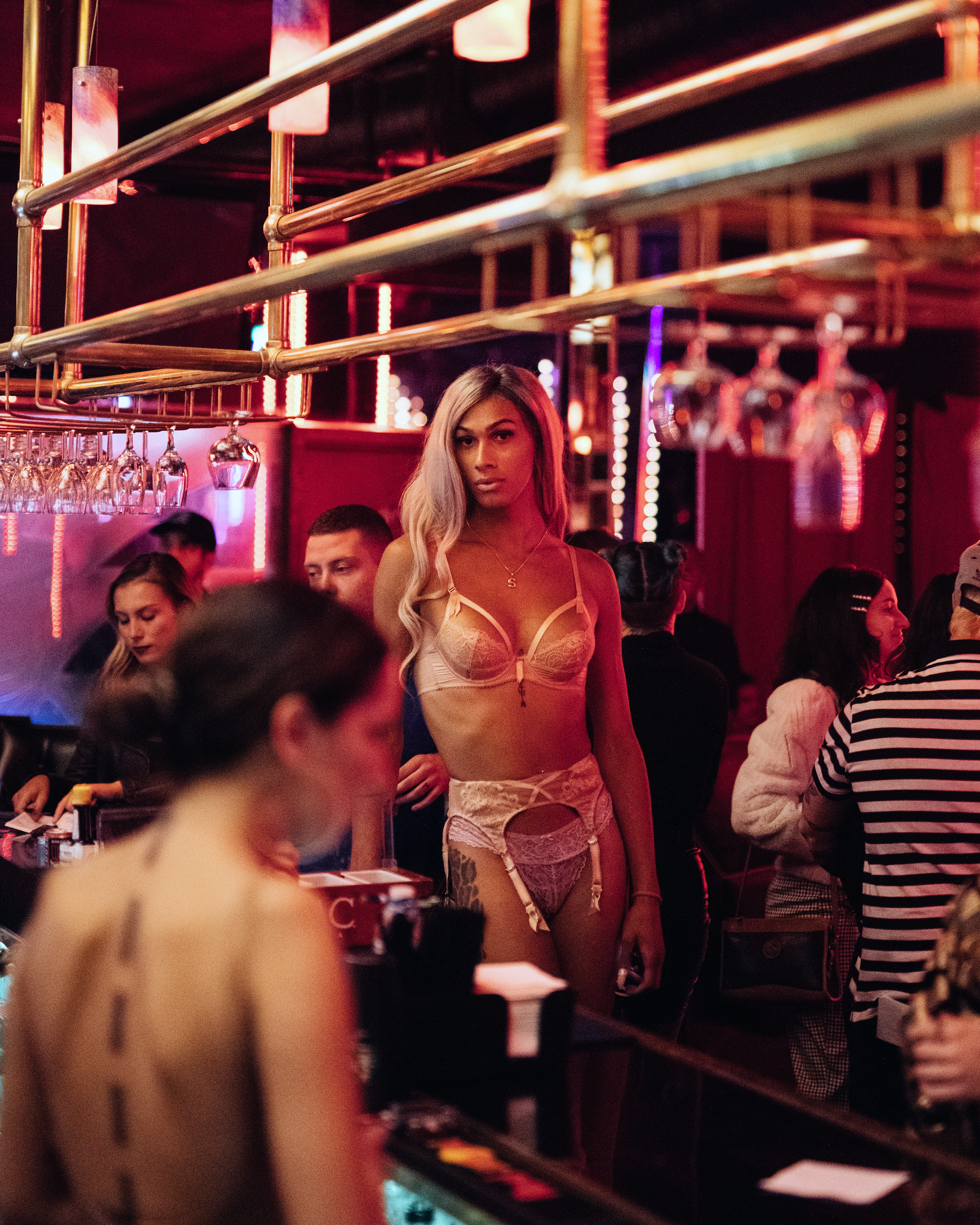
Irina, a genderfluid audience member who had stumbled into Cheetahs by chance, remarked with a wide smile: “Seeing other people who are in various states of their transition is way more attractive to me than just straight [cisgender] people. It’s more interesting; it’s more sexy, and titillating.” For one evening in a neon corner of Hollywood, whether they were emptying their wallets to tip, cheering on performers, or enjoying private dances, a crowd was liberated from social stigma to admire and be admired. They reveled in the fairy dust.
Follow Daniel Spielberger on Twitter.
Sign up for our newsletter to get the best of VICE delivered to your inbox daily.
This article originally appeared on VICE US.
